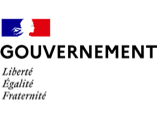Checking whether I am eligible for reimbursement of remote monitoring services
Reading time 5 min
Is my product a telemonitoring digital medical device?
Find out more: visit Telesurveillance Reimbursement.
My digital medical device is eligible for reimbursement

2 management methods are possible.
I identify my registration typeFrance will become one of the first countries in the European Union to reimburse under common law remote medical monitoring solutions that provide a clinical benefit or improve the organization of care.
Telemonitoring is a type of remote patient management that enables a healthcare professional to interpret medical data collected in the patient's place of life through the use of a digital medical device (DMD).
The ETAPES program (Expérimentations de Télémédecine pour l'Amélioration des Parcours en Santé) encourages and financially supports the deployment of telemonitoring projects throughout France. Currently, the experiment concerns 5 pathologies: heart failure, renal failure, respiratory failure, diabetes and implantable cardiac prostheses. Telemonitoring can be set up for any patient whose care requires a period of medical follow-up: it is particularly well suited to people at risk of hospitalization or complication of their illness (chronic pathologies, discharge from hospital, etc.). Telemedicine improves patient care and follow-up, and enhances quality of life by preventing complications. It also strengthens data collection and the coordination of healthcare professionals around patients.
Like any medical activity, telemonitoring must be carried out under conditions that guarantee the quality and safety of patient care. The entry into force of the new common law framework requires companies operating digital remote monitoring medical devices to comply with the security and interoperability obligations laid down by the Agence du Numérique en Santé. They are also required to obtain a certificate of compliance with the DMN interoperability and security repository.
The two decrees provided for in Article 36 of the Social Security Financing Act for 2022, set out the rules linking remuneration for types of remote medical management by healthcare professionals to those of the digital device used.
The first decree sets out the conditions for assessment and how to qualify for reimbursement. In practice, any activity may be eligible for inclusion on the list, regardless of the diseases treated, provided that "its benefit is greater than that of conventional medical monitoring, or if it is equivalent to or greater than that of a telemonitoring activity already registered", says the decree. Branded solutions will be assessed by the CNEDiMTS, a specialized commission of the French National Authority for Health (HAS). Players wishing to register under a generic name will have to have their compliance with specifications verified by the ANS.
This new reimbursement method complements the anticipated reimbursement of certain digital medical devices and remote medical monitoring activities. It will be introduced in the first half of 2023. The amounts of reimbursement by the Assurance Maladie are set by order of the Ministers of Social Security and Health.
The second decree, meanwhile, mentions the implementation of declarations of remote monitoring activities by medical teams to their ARS (Agence Régionale de Santé).
The operator will find many useful services on G_NIUS to guide him through the process:
In particular, he will find in the remote monitoring theme file what reimbursement is for these medical activities, the differences between generic line and brand name, find out if he is eligible for reimbursement of his device and identify all the steps required to access reimbursement for his solution, whether from the ANS, the HAS or the Minister of Health. The two guided pathways make the process easier for you.


